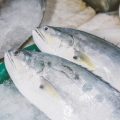Introduction: The Emergence of Women in UK Angling
For generations, angling in the United Kingdom has been perceived as a pastime and competitive sport largely dominated by men. However, the tides are changing. In recent years, there has been a marked increase in female participation across various levels of UK angling competitions. This evolution is not only transforming the landscape of the sport but also challenging traditional gender roles within it. As more women step onto podiums and into the spotlight, their achievements are earning well-deserved recognition from both peers and media alike.
This article, titled Exclusive Interviews: Leading Women in UK Angling Competitions, delves into the journeys, challenges, and triumphs of the trailblazing women making waves on the British angling scene. Their stories reflect broader shifts within the community: from changes in club policies to the growth of female-focused events and increased visibility for womens achievements in major tournaments.
| Year | % Female Participants (Estimated) | Key Milestone |
|---|---|---|
| 2010 | 5% | First all-female teams join national club competitions |
| 2015 | 9% | The creation of dedicated women’s categories in several major events |
| 2020 | 15% | Record number of female finalists at Fish’O’Mania |
The stories we present here offer insight into how these pioneering anglers are inspiring a new generation while redefining what it means to compete at the highest level. As we explore their experiences, it becomes evident that women’s growing presence is not just a trend but a permanent shift reshaping the future of UK angling.
Exclusive Voices: Interviews with Top Female Anglers
In this segment, we delve deep into the authentic experiences of some of the most successful women in UK angling competitions. These exclusive interviews offer a rare insight into their journeys, motivations, and the defining moments that have shaped their careers on the water. Each angler brings a unique perspective, reflecting both personal triumphs and broader shifts in the traditionally male-dominated sport.
First-hand Accounts: Journeys and Motivations
From seasoned veterans to emerging talents, our interviewees share what initially drew them to angling and how their passion has evolved over time. Many cite childhood memories with family by the banks of British rivers or lakes as their starting point, while others were inspired by local clubs or community events. The drive to compete at a high level is often rooted in a mix of personal ambition, love for the outdoors, and a determination to challenge stereotypes.
| Name | Years Competing | Main Motivation | Notable Achievements |
|---|---|---|---|
| Sophie Bennett | 12 | Pushing boundaries in a male-led field | UK Ladies National Champion (2021), Team England member |
| Lizzie Carter | 8 | Building a supportive female angling community | Multiple regional wins, organiser of “She Fishes” events |
| Amira Patel | 6 | Connecting with nature and mindfulness | Youth Angler of the Year (2019) |
Memorable Moments and Breaking Barriers
The stories shared in these interviews reveal not only individual milestones but also significant breakthroughs for women in UK angling. From landing their first trophy fish during a national competition to stepping onto the winner’s podium amidst cheers from both male and female peers, these women recount moments that changed perceptions and set new standards for what is possible in competitive fishing.
Personal Reflections: Overcoming Challenges
Each angler offers candid reflections on overcoming obstacles such as scepticism from fellow competitors, limited access to sponsorships, and balancing personal commitments with training schedules. Their resilience is clear, as is their commitment to mentoring younger anglers and advocating for greater inclusivity within the sport.
A Vision for the Future
The consensus among these leading women is one of optimism and purpose. They envision a future where gender plays no role in assessing an angler’s skill or success. Through sharing their experiences, they hope to inspire more women across the UK to pick up a rod and join the vibrant world of competitive angling.
![]()
3. Tackle and Technique: Gear Choices and Strategies
Our exclusive interviews with leading women in UK angling competitions reveal a fascinating diversity in their approach to tackle selection and fishing strategies. These anglers demonstrate an impressive technical acumen, often blending traditional British methods with innovative tweaks that reflect both personal preference and contemporary trends within the UK scene.
Preferred Equipment: Rods, Reels, and Lines
| Angler | Rod Type | Reel Choice | Main Line |
|---|---|---|---|
| Jess Parker | 11ft Match Rod | Fixed Spool (Shimano) | 6lb Fluorocarbon |
| Sophie Turner | 13ft Feeder Rod | Baitrunner (Daiwa) | Braided 8lb with Mono Leader |
| Alice Green | 9ft Carp Rod | Centrepin (John Wilson) | 10lb Monofilament |
The choices above reflect a mix of heritage brands and modern materials, with each angler tailoring their setup to both the species targeted and the specific venue. Notably, many female competitors favour slightly lighter setups for increased sensitivity, especially when match fishing on commercial stillwaters or rivers like the Trent and Thames.
Tactical Approaches and Adaptability
The interviewed anglers emphasise adaptability as a cornerstone of success. For example, Sophie Turner highlights her strategy of starting sessions with method feeders before switching to waggler floats if conditions change—a tactic mirroring broader competitive trends but executed with remarkable precision. Alice Green prefers stalking carp at close quarters using minimal tackle for stealth, a technique growing in popularity across UK fisheries.
Bait Selection and Preparation Routines
Bait choice is where individuality shines brightest. Many successful women anglers prepare their own groundbait blends at home, often incorporating local knowledge—such as using crushed hemp or sweetcorn for bream-heavy venues. Jess Parker stresses the importance of consistent feeding routines, meticulously timing loose feed introduction to draw in shoals without overfeeding.
How Their Approaches Compare to Wider UK Trends
While there are commonalities—such as the universal respect for reliable brands like Shimano, Daiwa, and Preston Innovations—these women also set themselves apart through meticulous attention to detail and a willingness to experiment. This nuanced balance between tradition and innovation not only aligns them with top-tier male counterparts but also positions them as trendsetters within the evolving landscape of UK angling.
4. Community and Camaraderie: Life Beyond the Bank
One of the most compelling insights from our exclusive interviews with leading women in UK angling competitions is the vibrant sense of community and camaraderie that thrives well beyond the banks of the nation’s rivers and lakes. Female anglers across the UK have not only carved out a space for themselves within a traditionally male-dominated sport but have also established robust support networks, fostering both friendship and mentorship.
Many interviewees highlighted how local angling clubs have become pivotal hubs for social connection and personal growth. These clubs aren’t just about catching fish; they are spaces where knowledge is shared, encouragement is freely given, and lifelong bonds are forged. Women often organise informal meet-ups, skill-sharing workshops, and group outings that help newer members gain confidence and feel welcome. This nurturing environment has helped dismantle barriers to entry, encouraging more women to take up the sport.
Key Roles Held by Women in Angling Communities
| Role | Description | Impact |
|---|---|---|
| Club Chairperson | Oversees club activities, represents members’ interests at regional meetings | Ensures women’s voices are heard in decision-making processes |
| Mentor/Coach | Guides new anglers, organises training sessions | Encourages skill development and boosts newcomers’ confidence |
| Event Organiser | Plans competitions, fundraising events, and social gatherings | Cultivates inclusive events tailored for all members |
| Community Outreach Lead | Liaises with schools, charities, and local groups to promote angling | Expands participation and raises awareness of women in angling |
The Importance of Support Networks
Through their own initiatives or as part of larger organisations like the Angling Trust, women anglers have set up online forums, WhatsApp groups, and Facebook communities. Here, they share tips on tackle selection, discuss favourite venues across Yorkshire or the Lake District, and arrange lifts to competitions. These digital platforms break down geographical barriers and provide ongoing support—especially valuable for those in rural areas or new to the sport.
Anecdotes from the Field
Several participants recounted how these networks have been vital during challenging times—be it navigating competition nerves or simply finding someone to enjoy a day’s fishing with. As one interviewee from Kent put it: “We’re more than just competitors—we’re a family who happen to love fishing.” Such sentiments capture how communal ties enrich the experience far beyond individual achievements.
The Wider Impact on UK Angling Culture
The active involvement of women in club leadership roles has gradually reshaped local angling culture. Their influence extends into outreach projects with youth groups, conservation efforts along riverbanks, and advocacy for more inclusive policies at national tournaments. The spirit of camaraderie among female anglers continues to inspire positive change—ensuring that angling in the UK becomes ever more welcoming for all.
5. Overcoming Challenges: Gender, Tradition, and Progress
While the presence of women in UK angling competitions is steadily increasing, the journey towards true equality is still fraught with unique challenges. In our exclusive interviews, top female anglers candidly discussed the hurdles they continue to face, particularly those rooted in longstanding gender perceptions and traditional barriers. Below, we explore these obstacles and highlight the progress being made across the British angling scene.
Traditional Gender Perceptions
Despite a growing acceptance of women in competitive fishing, many female anglers still encounter outdated views that see angling as a predominantly male pursuit. This cultural legacy can manifest as subtle discouragement at local clubs or overt bias during national events. As interviewee Laura Barnes notes, “Even now, there are people who doubt our skills simply because we’re women – but every competition is an opportunity to prove them wrong.”
Access to Resources and Opportunities
Another significant challenge is access to resources. Female anglers often report fewer sponsorship opportunities and limited access to advanced equipment compared to their male counterparts. This disparity extends to mentorship programmes and networking within angling communities.
| Challenge | Male Anglers | Female Anglers |
|---|---|---|
| Sponsorship Deals | Widely Available | Limited Access |
| Mentorship Opportunities | Commonplace | Emerging |
| Club Memberships | Readily Accepted | Occasional Resistance |
| Tournament Invitations | Mainstream Inclusion | Selective Inclusion |
The Push Towards Equity and Inclusion
The past decade has seen promising developments aimed at bridging these gaps. Initiatives led by organisations like the Angling Trust are fostering inclusive environments through targeted outreach, mixed-gender competitions, and educational workshops tailored for women and girls. Importantly, high-profile successes of leading female competitors are challenging stereotypes and inspiring more women to participate.
A Collective Effort for Progress
As several interviewees emphasised, progress depends not only on policy changes but also on grassroots efforts within local angling clubs. Allyson Carter remarks, “It’s about changing mindsets as much as regulations – when more women step forward, it encourages others to do the same.” The future looks brighter as the UK angling community increasingly recognises the value of diversity, striving for a level playing field where talent and passion determine success above all else.
6. Looking Forward: The Future of Women in UK Angling Competitions
The landscape for women in UK angling competitions is shifting rapidly, driven by a blend of progressive initiatives, high-profile mentorship, and the evolving format of competitive events. As highlighted by our exclusive interviews with leading female anglers, the next generation stands to benefit immensely from these changes. Their collective predictions and hopes form a roadmap for the continued advancement of women’s participation and leadership in British angling.
Initiatives Driving Change
Organisations such as the Angling Trust and Women’s Carp Team England have launched targeted programmes designed to nurture young talent, offer accessible coaching sessions, and create safe, inclusive spaces at local waters. These initiatives are not only introducing more women to the sport but also preparing them for higher-level competition.
| Initiative | Main Benefit | Future Impact |
|---|---|---|
| Women-Only Coaching Clinics | Skill development in supportive environments | Increased confidence and technical ability among newcomers |
| Youth Outreach Programmes | Early exposure to competitive angling | Larger pipeline of skilled female competitors |
| Mental Health & Wellbeing Workshops | Holistic support beyond just fishing skills | Sustainable engagement and retention of female anglers |
The Role of Mentorship
A recurring theme in our interviews was the transformative power of mentorship. Established anglers now regularly volunteer their time to guide emerging talent, sharing both technical knowledge and insights on navigating the unique challenges faced by women in the sport. This culture of support is expected to foster new leaders who will champion further inclusivity within UK angling.
Evolving Opportunities in Competition Formats
Competition organisers are responding to calls for change by introducing mixed-gender team events, refining scoring systems to minimise bias, and ensuring prize structures reflect true equality. These innovations are opening doors for more women not only to participate but also to take on roles as captains, coaches, and event officials.
Predictions & Hopes for the Next Generation
- A surge in junior female entrants into national championships within five years.
- At least a 50% increase in female representation on competition boards and judging panels by 2030.
- The establishment of all-women’s divisions at premier UK fishing festivals.
While significant progress has been made, our featured interviewees remain united in their aspiration: that future generations will view women’s achievements in angling as entirely mainstream rather than exceptional. With robust grassroots programmes, visible mentors, and fairer competition structures paving the way, the future for women in UK angling competitions has never looked brighter.


